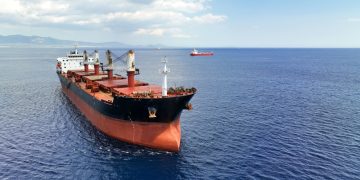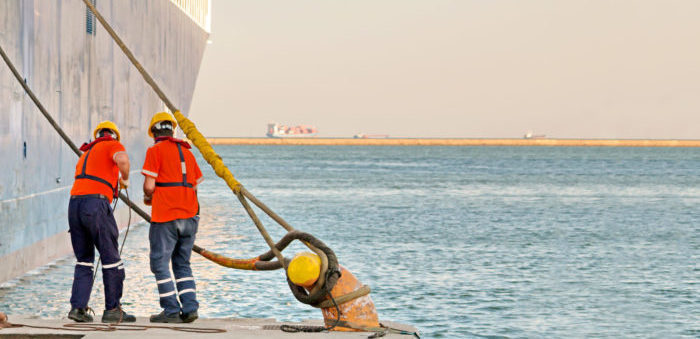Following the COVID-19 outbreak and the major travel restrictions that has brought, it is known that several seafarers are stranded onboard, unable to return back home.
In fact, a large amount of seafarers, as well as their spouses and family members, have contacted IMO to share their issues or difficulties concerning coronavirus.
Since the beginning of the pandemic, IMO has established an internal team to help resolve individual cases.
Specifically, IMO has already collaborated with organizations like the International Labour Organization (ILO), the International Transport Workers’ Federation (ITF) and the International Chamber of Shipping (ICS) to face the difficulties of COVID-19 crisis.
As IMO reported, through its cooperation with the above mentioned organizations, they managed to save a seafarer’s life.
“When a 45-year-old seafarer aboard a large cargo ship began to show signs of suffering a stroke, in mid-April, the ship’s captain was immediately alerted.
The next day, the seafarer’s condition worsened. He seemed confused, his speech was laborious, he had pain under the left shoulder and his left arm and leg were paralysed. The captain knew he needed to act fast.
Global Voyager Assistance, a remote medical assistance provider, confirmed the stroke diagnosis. But the ship was more than 220 km from the nearest port, and the port authorities rejected initial appeals for emergency medical assistance, due to COVID-19 restrictions in place.
Despite repeated requests from the vessel’s captain, the seafarer’s national trade union and that of the country the ship was headed for, the ship could not enter port.
After several hours of intense discussions, the ship initially received confirmation that the vessel could enter port for the medical transfer to take place.
However, that decision was reversed just six hours before the ship was due to arrive, and the captain was advised to set course for another port, in a different country, over 600 km away.
The clock was ticking. The captain insisted and made a further request to obtain medical evacuation for the seafarer, but that second attempt was also rejected by the authorities, including immigration and a local COVID-19 Task Force – again due to COVID-19 restrictions”.
In light of the above, the International Transport Workers’ Federation was notified, who then contacted the two UN agencies, the International Maritime Organization (IMO) and the International Labour Organization (ILO), to intervene urgently at government level.
IMO and ILO immediately took action. Namely, IMO contacted representatives from the national government, while ILO offered to prepare an intervention letter.
Eventually, the medical evacuation was finally authorized and a police vessel was dispatched to evacuate the seafarer.
After personally working on this case for over 48 hours, we are relieved our appeals were heard and our member was finally granted access to the medical treatment that he is entitled to. Our thoughts are now focused on his health, and we extend the best wishes of maritime unions worldwide to him and his family for his speedy recovery.
….the president of the seafarer’s national union said.
Overall, in order to give a boost to the crew changes issue and help governments establish coordinated procedures to facilitate the safe movement of seafarers, IMO issued a 12-step plan to 174 member states, providing them with a roadmap to free seafarers from their COVID-19 lockdown.


































































